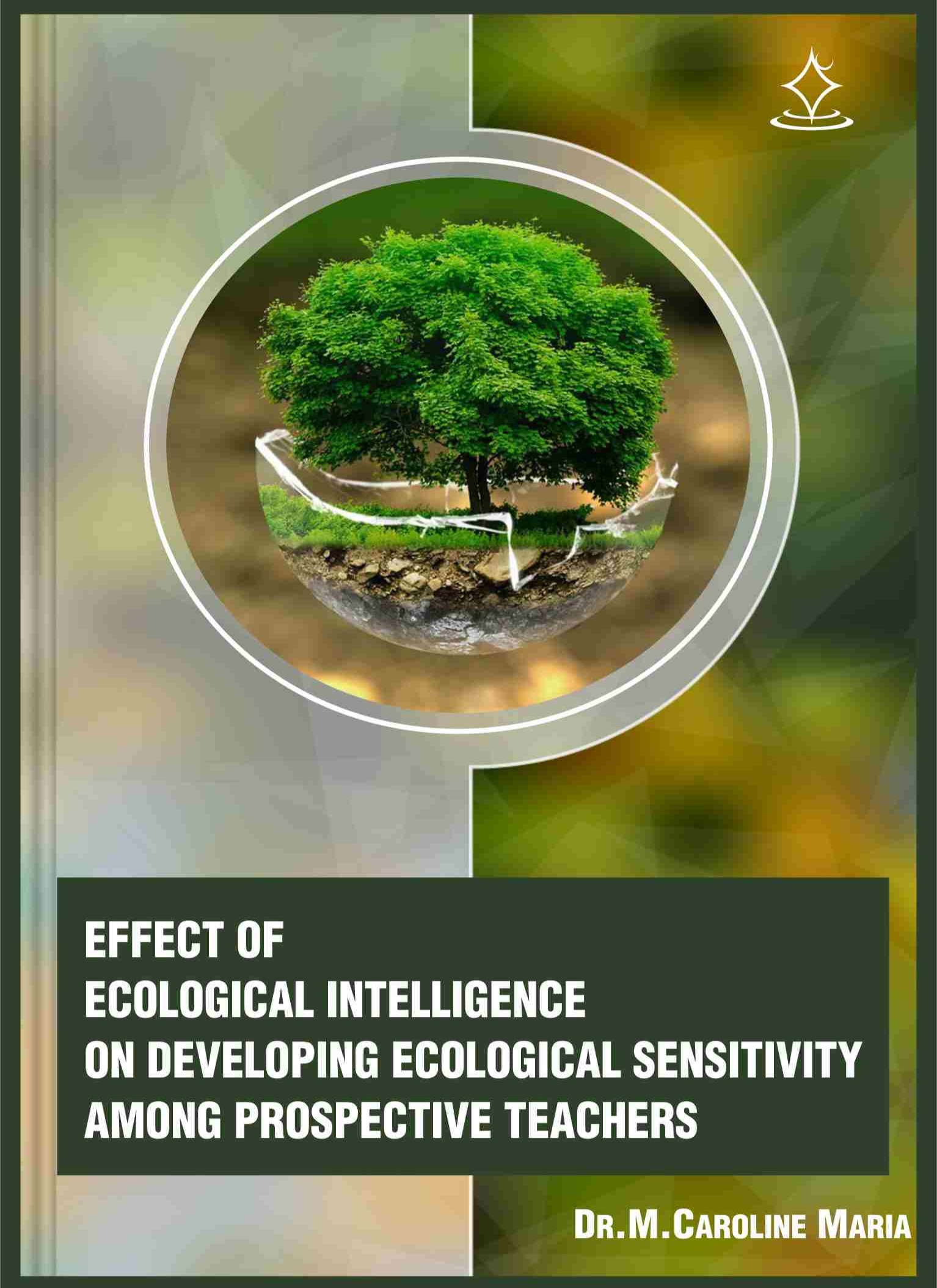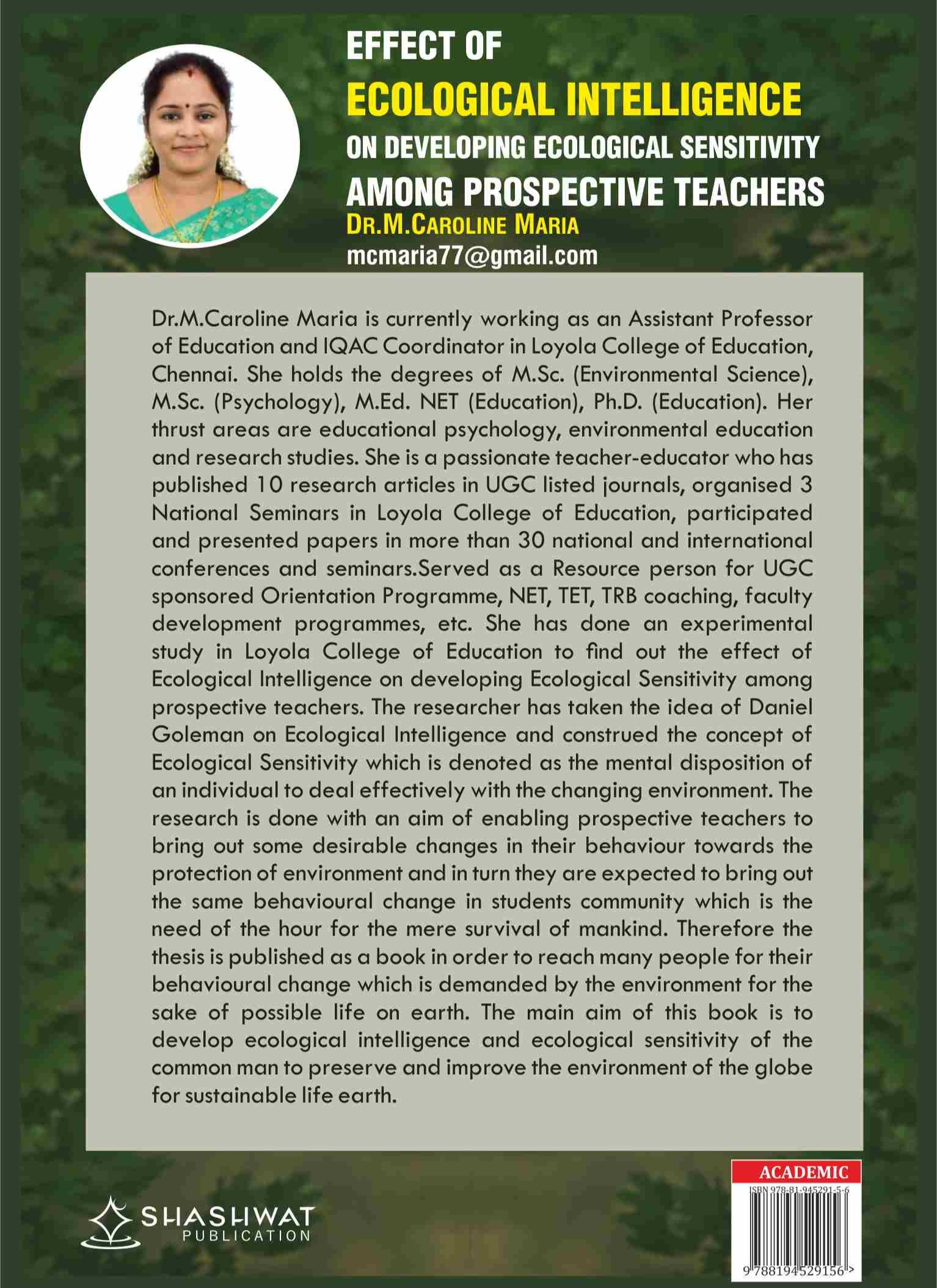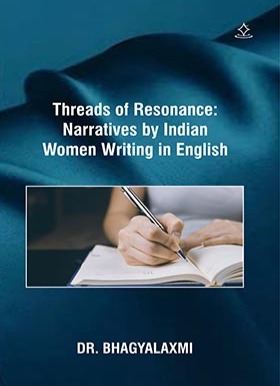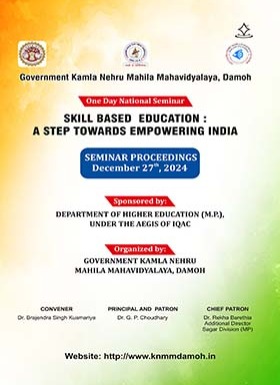


ISBN : 978-81-945291-5-6
Category : Academic
Catalogue : Reference
ID : SB19963
EFFECT OF ECOLOGICAL INTELLIGENCE ON DEVELOPING ECOLOGICAL SENSITIVITY AMONG PROSPECTIVE TEACHERS
4.0
Dr.M.Caroline Maria
Paperback
560.00
e Book
350.00
Pages : 304
Language : English
About Book
Preface Environment determines the life condition of all organisms on the earth. The continuous use of natural resources resulted in loss of forests, degradation of soil fertility, scarcity of fresh water and fossil fuel. Further, the developmental activities in terms of industrialisation and establishment of factories, improved transportation system have resulted in various environmental problems like global warming, climate change, ozone layer depletion, etc. In fact the mother earth is gasping heavily due to the unmindful human activities. To protect the earth from further deterioration suitable mechanism is to be developed in the human beings as they are the primary consumers of the resources available on earth. Therefore, I conducted an experimental study on the prospective teachers’ ecological intelligence and ecological sensitivity who are the destiny makers of our country. This experimental study is first of its kind in India. The experiment was conducted to enhance the prospective teachers’ ecological intelligence in order to develop their ecological sensitivity which is expected to be imbibed in student community for ensuring a safe environment to all living beings. I have adopted Daniel Goleman’s idea of ecological intelligence and perceived it as an individual’s collective ability to understand the human impacts on ecosystem. Then I developed the concept of ecological sensitivity from the perspective of the mental disposition of an individual to deal effectively the dynamic environment with empathy by taking initiatives to mitigate the environmental problems for sustainable development. The present study was warranted as the prevailing environmental condition demands the human beings to quickly respond to the environmental problems in order to protect the environment not only for the continued survival of the present generation, but also to ensure safe environment for the future generations. The present study includes five chapters. The first chap
Customer Reviews
ASHOKAN V :
Informative and useful.




